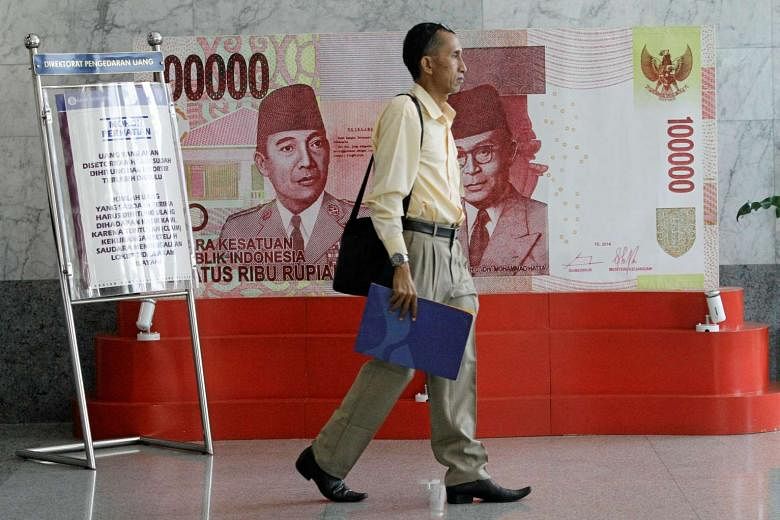JAKARTA - Wealthy Indonesians have stashed about US$250 billion (S$340 billion) worth of assets overseas, of which a whopping 80 per cent are kept in Singapore.
This was revealed by Indonesia's Finance Minister Sri Mulyani Indrawati on Tuesday (Sept 20) during a judicial review of her country's Tax Amnesty Bill.
"A study conducted by an international consultant revealed that of US$250 billion of Indonesians' assets parked overseas, about US$200 billion are kept in Singapore," she told a Constitutional Court in Jakarta.
Private bankers of high net-worth individuals have long estimated that some US$200 billion in Indonesian wealth is held in the Republic. But Tuesday was the first time a government official from either country has confirmed the amount.
It is no secret that many rich Indonesians bank their wealth in Singapore. These individuals, however, have been slow to sign up for the scheme which offers preferential tax rates ranging from 2 per cent to 10 per cent, depending on when they declare, and whether the funds are repatriated.
As of last Thursday, Indonesians have declared 117.3 trillion rupiah (S$12.1 billion) in assets held in Singapore, under the amnesty.
Reuters had reported on that same Thursday that private banks in Singapore were tipping off white-collar police with the names of clients applying for Jakarta's tax-amnesty scheme.
The Monetary Authority of Singapore (MAS) said in response to media queries that while banks in the Republic are required to file a suspicious transaction report when handling tax-amnesty cases, it does not necessarily mean that the client will be investigated by the police.
MAS added that banks in Singapore are required to adhere to the Financial Action Task Force standard of filing a suspicious transaction report when handling tax amnesty cases, similar to the practice in other jurisdictions.
The Tax Amnesty Bill is the first piece of legislation ratified by a Parliament where President Joko Widodo has majority support for the first time since taking office in 2014.
A reason the amnesty had such strong support from lawmakers was mainly due to its promise to raise billions of dollars for a country in need of funds to beef up its state coffers.
Indonesia hopes that some 1,000 trillion rupiah will be repatriated from overseas and invested locally under the scheme. It should also add 165 trillion rupiah to local tax coffers, if all goes to plan.
This is critical especially after Indonesia's state budget deficit is expected to soar to its highest level in decades due to revenue shortfalls.
Ms Sri Mulyani increased Indonesia's budget deficit target for the end of the year to 2.7 per cent of the country's gross domestic product last Friday, reported The Jakarta Post.
A budget, or fiscal deficit occurs when a government's total expenditures exceeds the revenue it generates and for Indonesia, the legal limit for its budget deficit is 3 per cent.
With an expected 219 trillion rupiah revenue shortfall this year, state spending has to be cut by 137 trillion rupiah for 2016. As of last month, the state revenue was only at 46.1 per cent, or less than half of the targeted level indicated in the revised state budget, according to the Finance Ministry.
The ministry also said that as of Sunday, revenue from the tax amnesty scheme was 25.8 trillion rupiah, or just 15.6 per cent of the 165 trillion rupiah target.
As if trying to raise the take-up rates for the amnesty scheme was not hard enough, Ms Sri Mulyani also had to defend the Bill, passed in June, at a judicial review on Tuesday.
The hearing was held after activists from four civil society groups such as the People's Struggle Union of Indonesia filed for a judicial review to demand that the Constitutional Court strike out the Tax Amnesty Bill.
Ms Sri Mulyani told the court that the judicial review filed by the four groups met only one of five conditions required for a review against a law, reported the Antara state news agency.
"The requester (of the judicial review) only managed to meet one requirement, namely having a constitutional right to be treated equally before the law," she added. "Meanwhile, four other requirements have not been met."
The Constitutional Court had asked that the government provide a written submission for it arguments against the judicial review and it will hear the case again next Wednesday (Sept 28).


